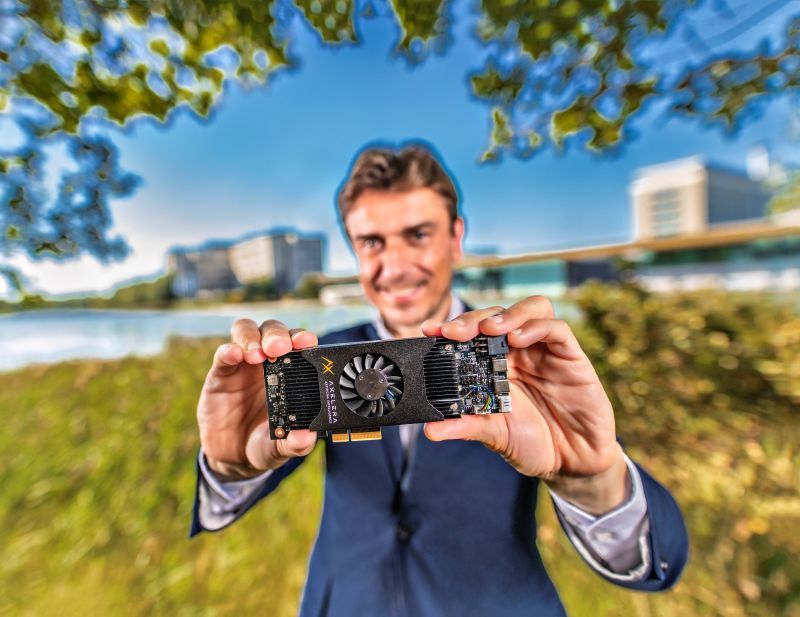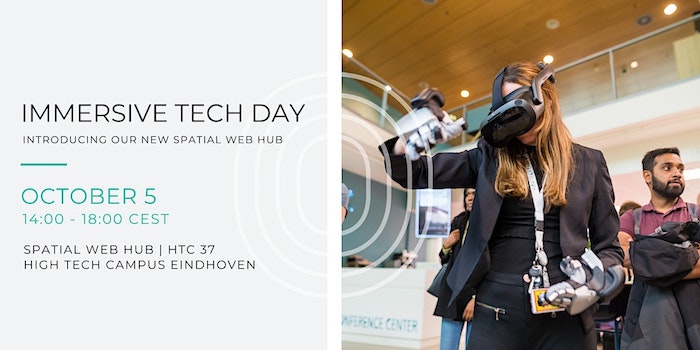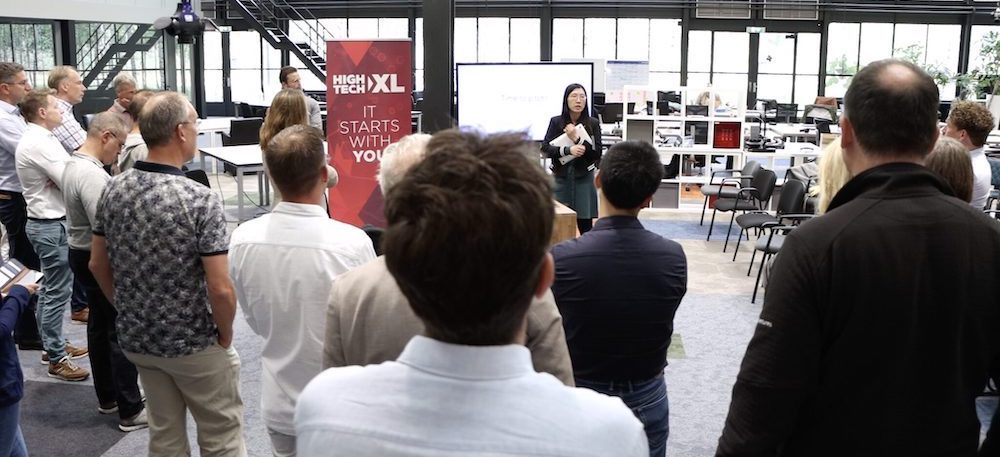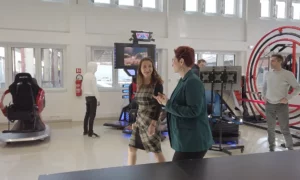(Editor’s note: The Eindhoven Business Briefing is always a part of our Tech Tuesday series … except today. We got tangled up in several agreements to hold big stories, so we’re creating a special Wednesday EBB.)
This is a textbook example of creative destruction – how innovative new companies emerge from the old order.
It’s no secret that electronics giant Philips has been downsizing its healthcare operations, cutting loose about 10,000 people, or about 13 percent of its workforce by 2025. The silver lining is, that’s a lot of talent suddenly freed from the corporate yoke … and ready to become entrepreneurs.
Eindhoven-based HighTechXL and Philips have created HealthTechXL, a new venture building program for startups in the healthcare and MedTech sector. The goal of the new partnership is to transition former Philips talent into a new generation of companies, creating, building and developing startups in advanced medical technology in the Brainport region.
And to keep all that talent here.
This is an integrated effort … talent, startup expertise and funding all in one package, and all designed to add another layer of depth and sophistication to Eindhoven’s startup ecosystem.
HealthTechXL officially launched with 50 participants earlier this month. In the first half of 2024, the
teams will pitch their proposal to investors, potential partners and the broader Brainport startup
community. The program is a collaboration of HighTechXL and regional economic-development agency BOM. BOM, DeepTechXL, and Invest-NL intend to invest in worthy companies emerging from the program, and expectations are that up to 15 can be funded over the next three years.
You might be thinking, “big deal,” and you’d be right. Because Philips is the genesis of Eindhoven’s domination of deep-tech semiconductor technology, spinning out both ASML and NXP. HealthTechXL could write an entirely new chapter in Eindhoven’s legendary business history.
If you decide to seize the day, contact us at: terry@dispatcheseurope and we’ll make the introductions.
Ik spreek geen Nederlands
If there’s one thing that could ruin the party in Eindhoven, it’s lack of talent, which is why there are multiple efforts to recruit highly skilled internationals from all over the world. Yet, there’s an emerging nationalistic sentiment to Dutchify the business community.
An increasing number of Dutch people are restive about English replacing Dutch, especially in the service industry. You’re Dutch in the Netherlands, but no one at the store, restaurant, bar, movie theater, etc, speaks the national language?
What the hell?
This replacement theory that the Netherlands won’t be Dutch much longer is seeping into business.
That’s manifesting itself in proposals to limit the number of foreign students and to replace English instruction at universities with a return to Dutch. No less a business figure than Peter Wennick, CEO of Eindhoven-based ASML, has said this is a terrible idea. For starters, about 30 million people in the world speak Dutch. English? About 2 billion including most of the world’s tech and business talent.
Wennick points out that his company – the largest tech company in Europe – owes much of its success to highly skilled internationals. In an Innovation Origins post, Affke Eppinga quotes the CEO as saying ASML employs 124 nationalities and that migration for HSIs must become more flexible, not less.
From that post:
Wennink also criticizes the idea of teaching only in Dutch at universities. He points out that the technology industry operates in English. Thus, using English as the language of instruction would contribute to a more inclusive educational environment and increase the attractiveness of Dutch universities for international students.
We – Dispatches – came to the Netherlands with capital to invest for multiple reasons, one of those reason being English is the dominant business language here. Now, seven years later, we’re seeing backlash against both the dominance of English and the increasing number of expats.
I completely sympathize, but that train has already sailed, so to speak. English is the global business language and if you decide to get all Brexit about it, highly skilled internationals will leave for countries that are expanding English usage including Germany and pretty much anywhere in Scandinavia.

Axelera ships new Metis AI hardware/software platform
Apropos English-speaking highly skilled internationals, the guy who’s created the most written-about and invested-in startup in Eindhoven is moving forward at warp speed.
At the AI Hardware & Edge AI Summit in The Valley, Italy native Fabrizio Del Maffeo announced the first shipment of Axelera AI’s Metis AI Platform. The shipment comes eight months after the product was taped out. Axelera’s schizzle dizzle is AI-native hardware and software solutions for companies of all sizes across a range of market verticals, from industrial manufacturing to smart retail solutions.
“Placing a comprehensive hardware and software solution directly into the hands of our customers
within a mere 25 months stands as a pivotal milestone for our company,” Del Maffeo, Axelera AI Co-Founder and CEO stated in a news release.
The Metis AI Platform integrating hardware and software offers Edge AI inference solutions catering to companies developing next-gen computer vision applications, according to the release. Paired with cameras, computers can store and process what they “see” for everything from facial recognition to sports to creating graphics.
Available in industry-standard form factors like PCIe cards, M.2 modules and vision- ready systems, it streamlines the integration of AI into business applications.
Del Maffeo has always said the goal of Axelera is to democratize AI. With a starting price of $149 appears to put AI capabilities within reach of small-to-midsized businesses.
It’s been a rocket ride for Del Maffeo and Co. Founded in July 2021, Axelera recently raised a Series A round for a total raised of about $50 million in just over two years. The company now has a staff of 130 operating and several locations including its headquarters on High Tech Campus Eindhoven as well as at R&D offices in Belgium, Switzerland, Italy and the United Kingdom.

Spatial Web Hub reveal
First it was the 5G Hub. Then it was the AI Innovation Center. Now, High Tech Campus Eindhoven is offering a sneak preview of its new Spatial Web Hub on 5 October at Immersive Tech Day. (The hub doesn’t open until early next year.)
The Spatial Web Hub will “explore the limitless possibilities of the next generation of the internet,” according to a news release. Immersive Tech Day promises an afternoon of demos and use cases by this region’s “big players in the field of immersive technologies.” Confirmed demo partners include: Philips, Movella, Fectar, Nvidia, CardsPLM, and Enversed.
Immersive Tech Day is scheduled for 2 p.m. to 6 p.m. in HTC 37 on campus. The event is free, but it’s best to register ahead of time because this will be SRO.
Salvia launches first migraine patient trials in Belgium
News flash! Belgian newspaper De Tijd featured High Tech Campus-based startup Salvia BioElectronics in an article over the weekend, including the launch of the first group of migrane patient clinical trials in Belgium. This is the second time worldwide and the first time in Europe the bioelectronic foil, developed by Salvia BioElectronics, has been implanted.
Dr. Bart Billet, a pain specialist at AZ Delta who performed the procedures with his colleagues, emphasizes the hope and new opportunities this implant offers migraine sufferers.
“I felt that my migraine improved immediately. I can sleep, laugh and enjoy life to the fullest again,” says one patient. The 35-year-old woman is so happy with the accompanying small portable device that she even designed a special bag for it. “I call it my little bag of happiness.”
Salvia BioElectronics was founded in 2017 with the mission to give people with migraine and cluster headache their lives back. The company is focused on developing flexible bioelectronic foils that offer a promising neuromodulation solution for headaches.
“We are restoring balance to the brain,” says Dr. Wim Pollet, Chief Medical Officer of Salvia BioElectronics.
Medical first (and second) from a HTCE resident? We call this #techforgood.
Read the full press release here. (pdf.)
Quick Hits:
• ASML is shipping its latest High NA EUV photolithography machine. Reuters has the best post. You can have one too (as long as you’re not Chinese) for the low, low price of 300 million euros.
• This is a big deal, so we’ll have more later. In a collaboration with Toyota Motor Europe, VDL Groep has launched its first hydrogen fuel cell demo truck. By integrating Toyota’s fuel cell technology into VDL heavy-duty trucks, Toyota aims to decarbonise its logistic operations in Europe. You can see the full news release from Toyota here.
Co-CEO of Dispatches Europe. A former military reporter, I'm a serial expat who has lived in France, Turkey, Germany and the Netherlands.















